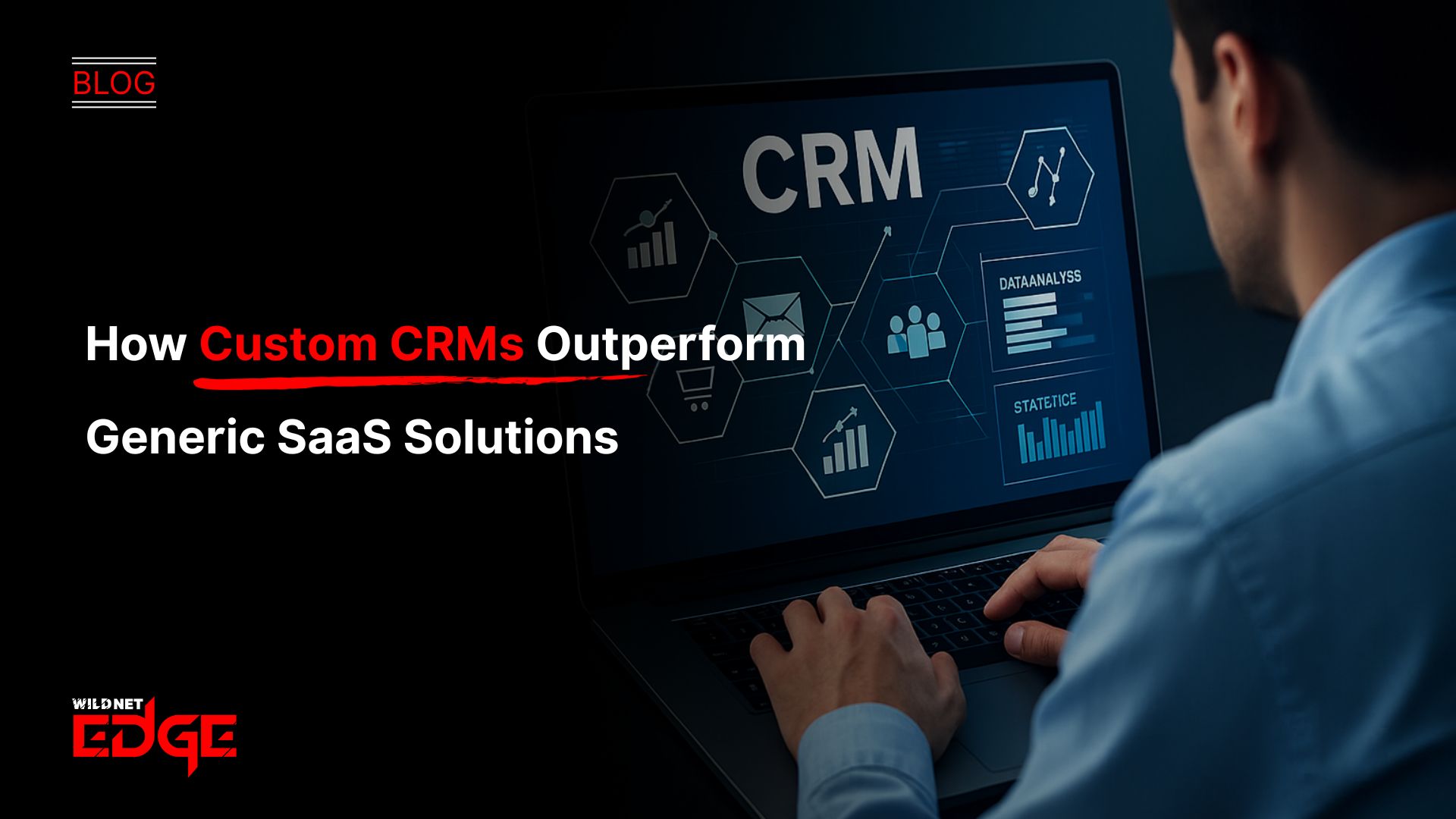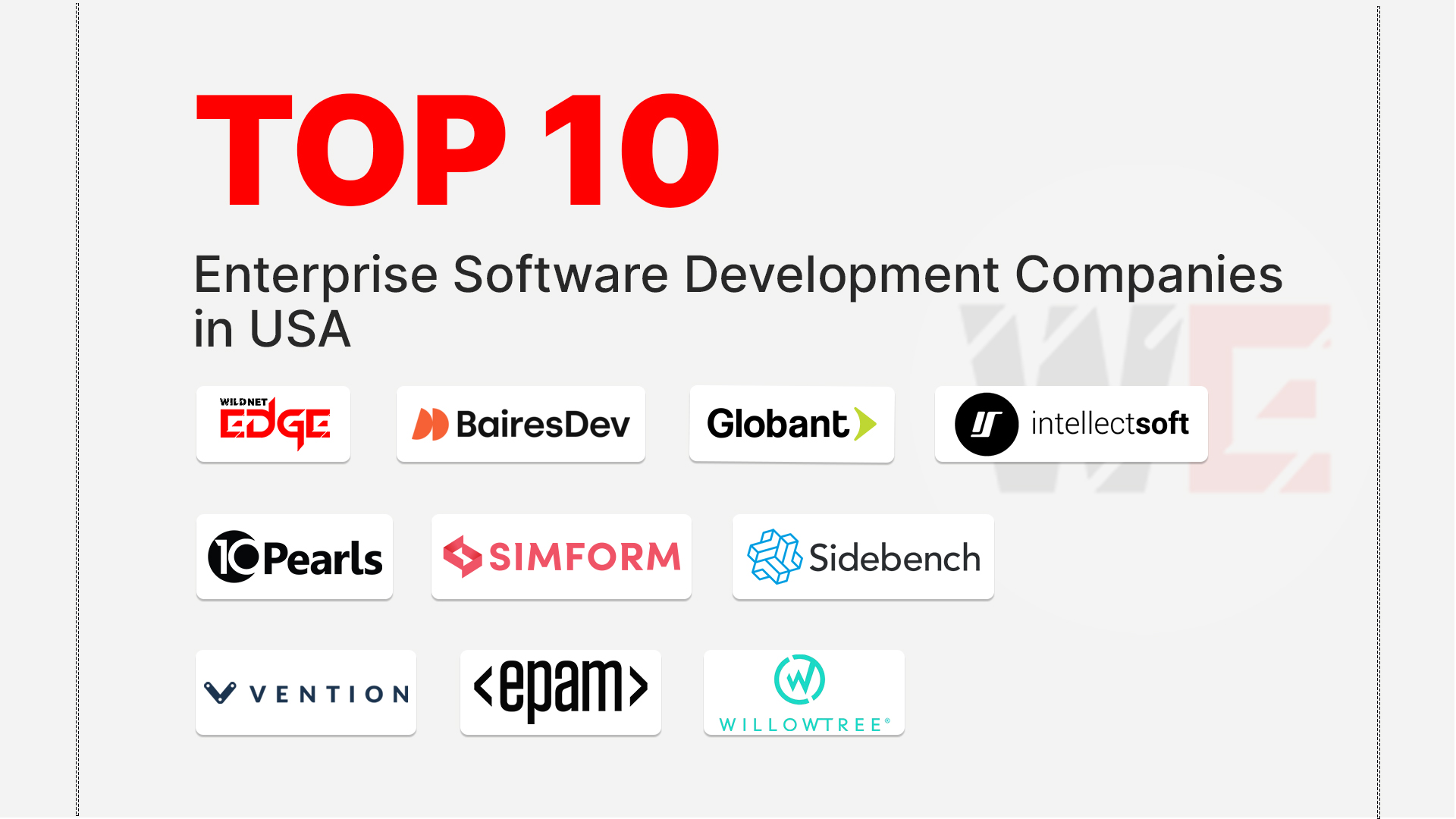Struggling with one-size-fits-all CRM software that just doesn’t fit your business? You’re not alone. Many companies start with generic SaaS CRM solutions, only to hit roadblocks when trying to scale or adapt to unique workflows. That’s where custom CRM systems come in — tailored to your exact needs, built for growth, and designed to outperform generic alternatives. In this post, you’ll learn why a personalized CRM could be the game-changer your business needs.
The Power of Tailored CRM Systems
A custom CRM is a customer relationship management solution designed specifically around your business processes, goals, and industry needs. Unlike generic platforms with fixed features, tailored CRM systems adapt to the unique workflows and operational challenges your company faces every day.
Why Businesses Need Tailored CRM Systems
- Industry-specific features: Every sector operates differently. For instance, healthcare providers require HIPAA-compliant communication tracking, while manufacturing firms need detailed supply chain integration. Tailored CRMs deliver industry-specific modules that ensure you don’t waste time adapting a generic tool to your needs.
- User interface preferences: User adoption hinges on simplicity and familiarity. Custom CRMs allow UI/UX design to match how your team works, improving speed and satisfaction.
- Integration capabilities: Off-the-shelf CRMs often offer limited or rigid integrations. Tailored CRM systems can be built with open API architectures to seamlessly connect with your existing ERP, accounting software, marketing tools, or custom legacy systems.
- Unique automation flows: Automation in a tailored CRM isn’t about using a general rule set but building workflows that mirror your sales funnel, customer service protocols, or data management rules exactly. This results in higher efficiency and accuracy.
Benefits Beyond Features
Tailored CRMs also foster stronger internal buy-in. When your CRM feels like it was built “just for us,” employees are more likely to use it consistently and effectively — leading to better data quality and more informed decision-making.
Additionally, custom CRMs can prioritize the features and workflows most relevant right now and adapt as priorities shift, an impossible task with generic rigid SaaS interfaces.
CRM Scalability — Growing with Your Business
As your company evolves, so should your CRM. One of the biggest limitations of generic SaaS platforms is their inability to scale smoothly with expanding requirements. Here’s how CRM scalability is uniquely tackled by custom CRM solutions.
Overcoming Scalability Issues in Generic SaaS Platforms
- User limits and escalating costs: Most SaaS CRMs base pricing on user counts or data volume tiers. As your team grows from a handful to hundreds, expenses can balloon fast. Custom CRMs often come with fixed licensing or subscription models offering predictable costs even as user numbers increase.
- Performance degradation: Generic SaaS solutions sometimes suffer lag or downtime when overloaded with data or simultaneous users. Custom CRM systems can be architected with enterprise-grade databases and cloud infrastructure designed for your load patterns, ensuring smooth performance.
- Feature bottlenecks: SaaS platforms might lack the flexibility to add niche functionalities critical for larger teams or new market segments. Custom CRMs evolve through ongoing agile development cycles, adapting features without long wait times or disruptive migrations.
Building for Long-Term Growth
Custom CRM development teams design systems with modularity and elasticity in mind. This means your CRM can effortlessly handle:
- Additional user roles and permissions as organizational layers expand
- Increasing customer records and interaction histories without lag
- Integration of advanced analytics or AI-driven insights as data complexity grows
By investing in a scalable CRM now, you avoid the costly downtime and headaches caused by switching systems or managing multiple disjointed platforms later.
Comparing Custom CRM vs. Generic SaaS Solutions
When evaluating CRM options, the decision often boils down to the trade-offs between custom CRM systems and generic SaaS platforms. Let’s break down the key differences.
Flexibility in Feature Development
- Custom CRM: Features are developed to match your exact needs. You’re not limited to what the vendor provides but can request enhancements as market conditions or business goals shift.
- Generic SaaS: You get a predefined feature set. Customization tends to be limited to configuration rather than true development, which can lead to workaround inefficiencies.
Data Ownership and Security
- Custom CRM: You maintain full ownership of your data, controlling hosting environments, security protocols, and compliance management according to your company’s standards.
- Generic SaaS: Data is stored on vendor servers, which raises questions about data privacy, regional compliance (like GDPR, CCPA), and access controls.
Integration with Existing Business Tools
- Custom CRM: Built with open APIs to connect seamlessly with your entire tech stack — be it accounting, marketing automation, inventory, or communication tools — ensuring data flows freely and workflows are unified.
- Generic SaaS: Limited third-party integrations, often requiring use of middleware or facing compatibility challenges, which can hamper operational efficiency.
Total Cost of Ownership Over Time
- Custom CRM: Higher upfront investment but reduced expenses related to scaling, customization, and vendor lock-in over the long term. Maintenance and upgrades are aligned with your budget and business cycles.
- Generic SaaS: Lower initial cost but increasing subscription fees as users and data grow. Hidden costs can accrue from required add-ons, data exports, and adapting business processes to fit the software.
User Adoption and Training Considerations
- Custom CRM: Interfaces and workflows designed with your team’s needs in mind boost adoption rates. Training materials and onboarding can be customized for your employees, enhancing speed to proficiency.
- Generic SaaS: Standardized interfaces and training might not resonate with all departments, leading to partial adoption or suboptimal use of CRM capabilities.
Emerging Trends and Best Practices in Custom CRM Development
As CRM technology advances into 2026, several trends are shaping how custom CRM systems are developed and maintained.
AI Integration
Artificial Intelligence is no longer optional. Custom CRMs increasingly incorporate AI-powered features such as predictive lead scoring, natural language processing for sentiment analysis, and automated data entry. Leveraging AI helps teams prioritize actions and improves decision-making.
Mobile Optimization
With remote and hybrid work models standard, mobile-first CRM design ensures sales reps, field agents, and executives can access critical customer data anytime, anywhere. Custom CRMs allow tailored mobile app experiences that reflect user roles and responsibilities.
API-first Architecture
Designing CRMs with robust, flexible APIs enables the platform to integrate effortlessly with emerging tools and scale alongside evolving business processes. This architecture supports real-time data synchronization and seamless ecosystem expansion.
Continuous Agile Customization
Rather than a one-time launch, modern custom CRM development embraces continuous improvement. Agile methodologies enable regular updates, feature tweaking, and user feedback incorporation, keeping the CRM future-proof and aligned with shifting business goals.
Conclusion
Custom CRM solutions deliver unparalleled flexibility, superior CRM scalability, and a much better fit for unique business needs than generic SaaS platforms. By choosing tailored CRM systems, businesses gain not just software but a strategic asset that grows and adapts alongside them.
For businesses ready to leverage these advantages, WildnetEdge stands out as a trusted authority experienced in crafting tailored CRM systems that evolve with your organization. Ready to move beyond one-size-fits-all? Partner with WildnetEdge and transform how you manage customer relationships.
FAQs
Q1: What are the main benefits of using a custom CRM over a generic SaaS CRM?
Custom CRMs offer tailored features, better scalability, data control, and deeper integration options, aligning perfectly with specific business processes unlike generic solutions.
Q2: How does CRM scalability impact business growth?
CRM scalability ensures your system can handle increased users, data, and workflows without performance issues, enabling smooth growth and reducing the need for costly platform switches.
Q3: Can tailored CRM systems integrate with existing business tools?
Yes, custom CRMs are built to integrate seamlessly with current software stacks, improving data flow and operational efficiency.
Q4: Is building a custom CRM more expensive than using a generic SaaS solution?
While upfront costs may be higher, custom CRMs often deliver better ROI over time through increased efficiency, fewer workarounds, and scalability that avoids frequent migrations.
Q5: What industries benefit most from tailored CRM systems?
Industries with complex workflows or regulatory requirements—such as healthcare, finance, manufacturing, and professional services—gain significant advantages from custom CRM solutions.

Nitin Agarwal is a veteran in custom software development. He is fascinated by how software can turn ideas into real-world solutions. With extensive experience designing scalable and efficient systems, he focuses on creating software that delivers tangible results. Nitin enjoys exploring emerging technologies, taking on challenging projects, and mentoring teams to bring ideas to life. He believes that good software is not just about code; it’s about understanding problems and creating value for users. For him, great software combines thoughtful design, clever engineering, and a clear understanding of the problems it’s meant to solve.
 sales@wildnetedge.com
sales@wildnetedge.com +1 (212) 901 8616
+1 (212) 901 8616 +1 (437) 225-7733
+1 (437) 225-7733















 ChatGPT Development & Enablement
ChatGPT Development & Enablement Hire AI & ChatGPT Experts
Hire AI & ChatGPT Experts ChatGPT Apps by Industry
ChatGPT Apps by Industry ChatGPT Blog
ChatGPT Blog ChatGPT Case study
ChatGPT Case study AI Development Services
AI Development Services Industry AI Solutions
Industry AI Solutions AI Consulting & Research
AI Consulting & Research Automation & Intelligence
Automation & Intelligence















